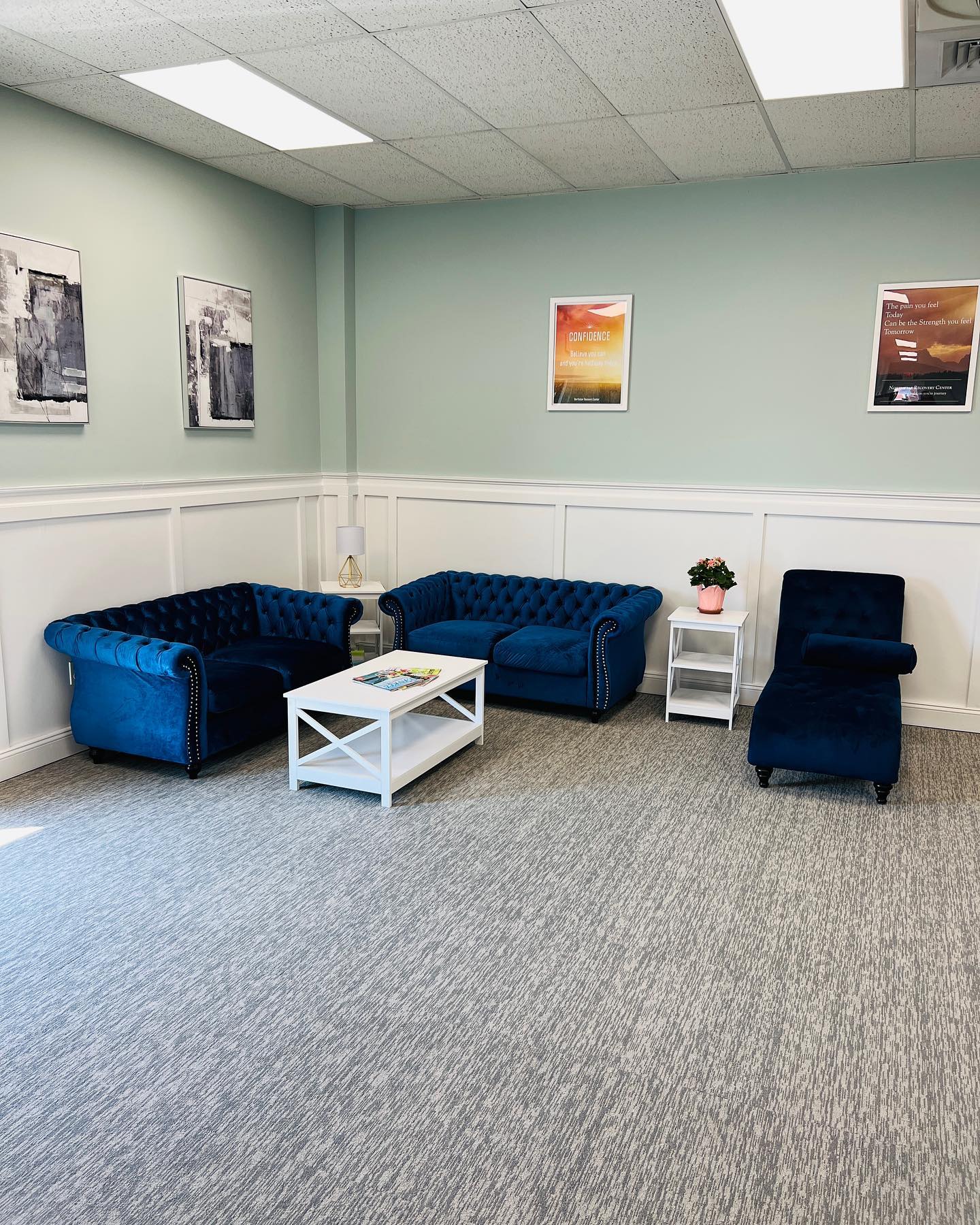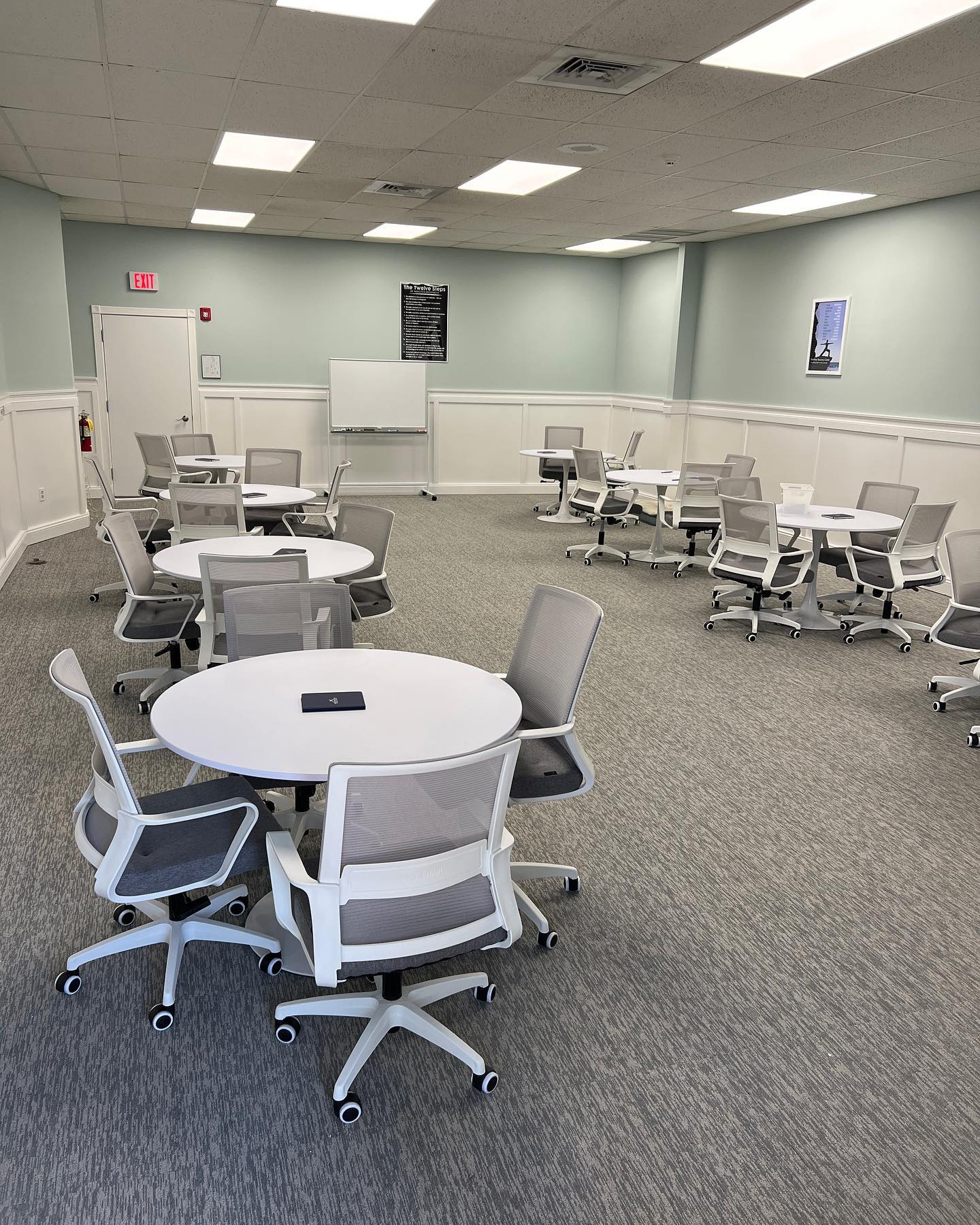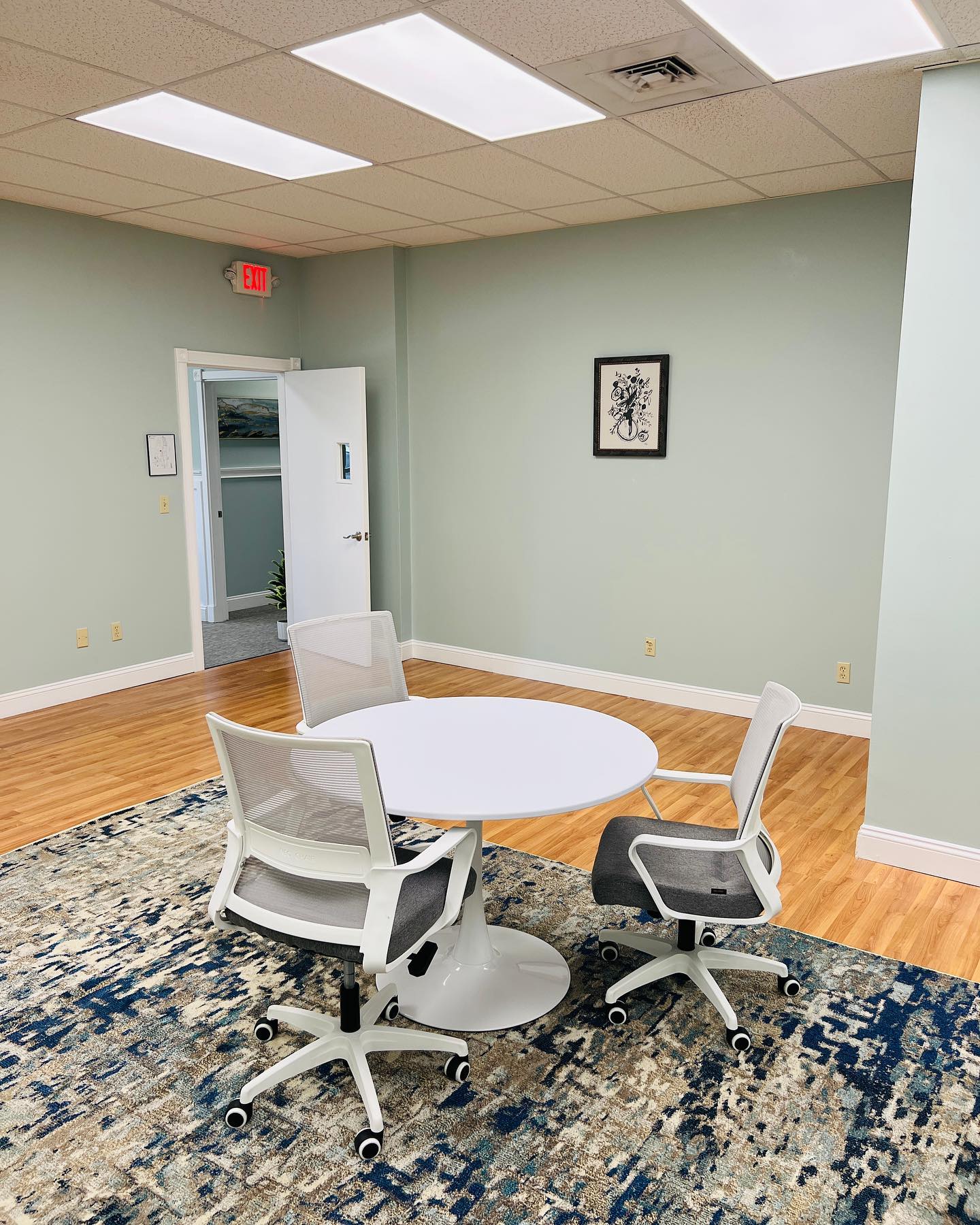
by Northstar | Jul 12, 2023 | Recovery
Addiction is a widespread issue affecting millions worldwide, including friends and colleagues. The impact of addiction goes beyond the individual; it also affects families, workplaces, and communities. As concerned and caring individuals, we must be proactive in preventing addiction among our friends and colleagues. In this blog, we will explore the significance of alcohol addiction prevention, discuss ten practical ways to look out for our friends and colleagues, and understand when addiction treatment in MA becomes necessary.
Importance of Alcohol Addiction Prevention in MA
The importance of alcohol addiction prevention in MA cannot be overstated, as it plays a critical role in safeguarding individuals’ and communities’ physical, emotional, and social well-being. Alcohol addiction, or alcohol use disorder (AUD), is a chronic and progressive condition that can lead to devastating consequences for those affected and their loved ones. By focusing on prevention, we can address the issue at its roots and reduce the prevalence and impact of alcohol addiction.
First and foremost, prevention is a proactive approach to addressing alcohol-related problems before they escalate into a full-blown addiction. By raising awareness about the risks and consequences of excessive alcohol consumption, we empower individuals to make informed choices about their drinking habits. Education plays a key role in dispelling myths surrounding alcohol use and shedding light on the potential dangers of excessive drinking, especially among vulnerable populations such as teenagers and young adults.
Preventing alcohol addiction also contributes to improved public health outcomes. Alcohol abuse is linked to many physical health issues, including liver damage, cardiovascular problems, and an increased risk of certain cancers. By reducing the incidence of alcohol addiction, we can alleviate the burden on healthcare systems and improve overall health and life expectancy.
Additionally, addiction prevention fosters stronger communities and workplaces. Substance abuse can lead to strained relationships, impaired job performance, and increased accidents and injuries. Creating supportive and alcohol-free environments encourages healthier social interactions and promotes workplace productivity and safety.
Moreover, averting alcohol dependency is about lessening the population that manifests AUD and backing the potentially vulnerable. Prompt intervention and help can heavily influence the lives of people grappling with alcohol-related challenges. By providing resources and an empathetic approach, we can aid the needy in finding suitable treatments and start on a journey to recuperation.
The prevention of alcohol dependency is crucial to public health and communal welfare. Through emphasizing education, providing support, and fostering a caring environment, we can diminish the occurrence of alcohol addiction and its extensive impacts. The unified effort to thwart alcohol addiction contributes to the health and contentment of individuals, families, and society. By endorsing responsible alcohol use and assisting those in need, we can construct a more robust and understanding society that flourishes without alcohol-related detriment.
10 Ways to Look Out for Your Friends and Colleagues Suffering from Alcohol Addiction in Massachusetts
Looking after the people we care for as friends and coworkers doesn’t just mean having fun times and laughter with them. In the complex world of human relationships we’re a part of, it’s key to spot signs of trouble, and lend a helping hand, especially when dealing with the tough issue of alcohol abuse. By carefully watching the group of people around us with understanding compassion, we can take an active role in stopping any issues related to alcohol, and create a supportive environment.
With this in mind, we now list a ten-step practical plan, filled with deep meaning. This plan aims to show how to stay alert for our valued friends and workmates practically. These guidelines aim to help as they navigate the rough waters caused by issues related to drinking alcohol. But they also take on a preventive role that could stop addiction even before it takes a strong hold on their lives.
1. Educate Yourself: Start by understanding the signs and symptoms of alcohol addiction. Knowledge empowers you to recognize potential issues early on and respond appropriately.
2. Foster Open Communication: Create a safe and non-judgmental space for your friends and colleagues to discuss their challenges and concerns. Being approachable allows them to open up about their struggles with alcohol.
3. Recognize Behavioral Changes: Pay attention to significant changes in behavior, such as increased irritability, social withdrawal, or unexplained absences. These might be red flags indicating alcohol-related problems.
4. Be Supportive: Offer your support and encouragement to those who might be struggling. Express your willingness to listen and assist them in seeking help when needed.
5. Organize Alcohol-Free Activities: Suggest and participate in social activities that do not involve alcohol. This can help reduce the pressure to drink and encourage healthier alternatives.
6. Promote Work-Life Balance: Encourage a healthy work-life balance within your workplace. Long hours and excessive stress can sometimes drive individuals towards alcohol as a coping mechanism.
7. Be Mindful of Alcohol at Work Events: If your workplace holds events with alcohol, ensure non-alcoholic options are available. This inclusivity can be helpful for those who choose not to drink.
8. Offer Resources: Familiarize yourself with local support groups, counseling services, and addiction helplines. Having this information readily available can be beneficial for someone seeking help.
9. Intervene with Care: If you suspect that a friend or colleague is struggling with alcohol addiction, approach them with empathy and compassion. Express your concern and offer to assist them in seeking professional help.
10. Lead by Example: Be a role model by demonstrating responsible alcohol consumption and healthy coping mechanisms. Showing that it is possible to have fun and manage stress without excessive drinking can inspire others to follow suit.
When is Addiction Treatment for Alcohol in MA Necessary
While prevention is vital, sometimes alcohol addiction may have already taken hold in someone’s life. Recognizing when addiction treatment becomes necessary is crucial for supporting your friends and colleagues on their recovery journey. Here are some signs that indicate professional help is needed:
-Consistently and excessively drinking despite negative consequences.
-Failed attempts to cut down or quit drinking on their own.
-Neglecting personal and professional responsibilities due to alcohol use.
-Experiencing withdrawal symptoms when not drinking.
-Engaging in risky behaviors while under the influence.
-Continued alcohol use despite worsening physical or mental health issues.
-Persistent cravings and preoccupation with alcohol.
Choosing an Addiction Treatment Facility for Alcohol in MA
When alcohol addiction has taken hold of someone’s life, seeking professional help becomes essential for a successful recovery journey. Massachusetts (MA) offers a range of addiction treatment facilities, but selecting the right one can be a critical decision that greatly influences the individual’s chances of overcoming addiction. Here are some factors to consider when choosing an addiction treatment in MA:
1. Treatment Approaches: Look for a facility that offers evidence-based treatment approaches tailored to the individual’s needs. Effective treatments may include cognitive-behavioral therapy (CBT), individual counseling, group therapy, and family therapy. Ensure that the facility has licensed and experienced professionals specializing in addiction treatment.
2. Accreditation and Licensing: Verify that the treatment facility is accredited and licensed by reputable organizations, such as the Substance Abuse and Mental Health Services Administration (SAMHSA) and the Commission on Accreditation of Rehabilitation Facilities (CARF). Accreditation ensures that the facility meets specific standards of care and adheres to best practices in addiction treatment.
3. Continuum of Care: Consider a facility that provides a continuum of care, offering various levels of treatment as needed. A comprehensive treatment plan that includes detoxification services, residential or outpatient programs, and aftercare support can better address the individual’s unique needs throughout their recovery journey.
4. Location and Environment: The location and environment of the treatment facility can significantly impact an individual’s experience during treatment. Some may prefer a facility in a serene and peaceful setting, away from triggers and distractions, while others may benefit from a more urban environment closer to their support network.
5. Family Involvement: Family involvement is crucial in the recovery process. Look for a facility that offers family therapy and educational programs to help loved ones understand addiction and support their family member’s journey to recovery.
6. Dual Diagnosis Treatment: Many individuals struggling with alcohol addiction may also have co-occurring mental health disorders. A facility that provides dual diagnosis treatment addresses both the addiction and any underlying mental health issues simultaneously.
7. Peer Support and Aftercare: Recovery is an ongoing process, and post-treatment support is vital for long-term success. Choose a facility that offers peer support groups and aftercare programs to help individuals maintain their sobriety and prevent relapse.
Why You Should Choose Northstar Recovery Centers in Massachusetts
Looking out for our friends and colleagues regarding alcohol addiction prevention is a responsibility that fosters a caring and supportive environment. Educating ourselves, recognizing behavioral changes, and offering support can positively impact their lives and well-being. Additionally, understanding the signs that call for professional addiction treatment in MA empowers us to be effective allies on their journey to recovery.
If prevention is no longer an option, choosing an addiction treatment in MA for your friends or colleagues may be the next best option. This is a significant decision that requires careful consideration. By assessing the treatment approaches, accreditation, environment, family involvement, and other critical factors, individuals can make an informed choice that best suits their unique needs and increases their chances of achieving lasting recovery. Finding the right addiction treatment in MA can be a pivotal step toward reclaiming a life free from the grip of alcohol addiction. Check out North Star Recovery Center for your options.
NorthStar Recovery Center, deeply nestled in the scenic landscape of the heart of Massachusetts, offers sanctuary and support to those battling alcohol addiction. With two locations in Southborough, MA, and Springfield, MA, NorthStar stands as a beacon of hope for those searching for the best rehab near them. A place that promises comprehensive care and a supportive environment, it surpasses the conventional definition of a rehabilitation center.
The serene campuses in Southborough and Springfield are more than just luxury rehabs near you. They are places of transformation, where a commitment to sobriety is welcomed with open arms, and every individual is provided the personalized care they require to embark on a journey towards lasting recovery.
NorthStar Recovery Center offers a spectrum of alcohol treatment services tailored to fit the precise needs of each individual. The center specializes in Partial Hospitalization Programs (PHP), Intensive Outpatient Programs (IOP), and Outpatient Programs (OP). These programs are carefully structured to facilitate the transition from dependence to sobriety, providing clients with the tools and strategies necessary to reclaim their lives from addiction.
In the heart of Massachusetts, the Partial Hospitalization Program at NorthStar provides a structured, rigorous treatment protocol for individuals in the early stages of recovery. A step down from full-time residential treatment, PHP provides therapeutic support while enabling individuals to gradually reintegrate with the community. Utilizing evidence-based approaches, the PHP program at NorthStar ensures individuals have a solid foundation for their sobriety, making it a leading provider for alcohol treatment in MA.
Meanwhile, NorthStar Recovery Center’s Intensive Outpatient Program is optimal for those needing continued support after residential treatment or those with less severe addiction. IOP in MA involves fewer hours per week than PHP but maintains a robust focus on relapse prevention, stress management, and peer support. If you’re looking for alcohol treatment near Boston, NorthStar’s IOP ensures the right balance between intensive care and the freedom to fulfill personal and professional commitments.
The Outpatient Program is an essential part of the treatment continuum at NorthStar, providing ongoing weekly support. It’s particularly beneficial for individuals who have made significant progress in their recovery journey and are ready to ease back into regular day-to-day activities. OP is a key asset of NorthStar’s holistic approach to alcohol counseling, offering an avenue for maintaining long-term sobriety.
At NorthStar Recovery Center, the approach goes beyond providing recovery services. It holds a mirror to society, showcasing the effectiveness of comprehensive, individualized treatment for alcohol addiction. A rigorous champion of sober living, the center sets the bar for luxury rehabs in Massachusetts.
NorthStar welcomes those seeking refuge from the shackles of alcohol addiction. It offers the best of both worlds: a high standard of care and comfortable, serene surroundings that foster wellness and healing. It’s the ideal place for anyone seeking ‘rehab near me’ to begin anew, offering a ray of hope in the paradigm of Massachusetts alcohol rehabs.
The battle against addiction might be fierce, but your ally in the fight – NorthStar Recovery Center- is a true testament to resilience and rehabilitation. Choose a life of sobriety. Choose NorthStar, your north star for alcohol treatment in Massachusetts. Choose the chance to rewrite your story in the heart of Massachusetts, where hope and recovery bloom in unison.
Northstar Recovery Center is at the forefront of addiction recovery, employing cutting-edge treatment methods, personalized programs, and an empathetic, dedicated team. Harnessing the latest research, we have revolutionized the field, making significant strides toward conquering addiction.
Contact us today to learn how our comprehensive treatment program can make the difference for you or a loved one grappling with addiction.
Our holistic approach involves cognitive-behavioral therapy, experiential therapy, and mindfulness practices, all tailored to individual needs. Come visit Northstar, experience firsthand what makes us a leader in the field.
Don’t wait another day to begin the beautiful journey toward recovery—reach out to our committed and compassionate specialists now. They are excited to walk you through our evidence-based programs.

Our research-backed relapse prevention training has shown significant effectiveness, offering tools and techniques to maintain sobriety long term. Get in touch today to learn more about this unique program and begin your sustained recovery.
Step into a supportive and healing environment at Northstar Recovery Center. We urge you to take advantage of our range of resources designed to foster healing and recovery.
Reach out to us today to inquire about our state-of-the-art facilities. Come explore our serene surroundings that promote relaxation and recovery.
We invite you to join our supportive community—call us now at Northstar Recovery Center, a place where your recovery journey isn’t just a path, but a full-scale evolution towards the best version of yourself.
The time for change is now. Take your first step on the path to recovery, contact us now to find out how our industry-leading programs at Northstar Recovery Center can be the catalyst to reclaiming your life.
Secure your future free from addiction with us, because at Northstar Recovery Center, it’s not just about recovery, but about discovering a life bigger than you have ever imagined. Reserve a consultation today.
The journey of a thousand miles begins with a single step. Take that step with Northstar Recovery Center. Call now. Your new life awaits.

by Northstar | Jul 11, 2023 | Recovery
Northstar Recovery Center in Massachusetts offers a fantastic choice for addiction treatment. Discover the significance of addiction treatment and get introduced to the renowned Northstar Recovery Center. Find out how their approach can provide recovery-seeking individuals with the necessary support and resources. Their expertise and dedication make Northstar Recovery Center a trusted destination for those seeking effective addiction treatment in Massachusetts.
The Importance of Addiction Treatment in Massachusetts
Addiction treatment is key for handling substance use disorders. Northstar Recovery Center in MA has comprehensive programs and resources to assist individuals on their recovery journey. Stats show that 1 in 4 people will suffer from drug abuse at some time, making treatment options crucial. Substance use disorder is a medical condition, thus emphasizing the need for counseling, support groups, and medication. The effects of addiction on daily life and legal issues further stress the need for appropriate treatment.
 Treatment choices for substance use disorder can include detoxification, counseling, and medication-based programs. The severity of addiction dictates the time needed for rehabilitation. Partial Hospitalization Programs (PHP) provide intensive treatment while allowing patients to stay home. This offers benefits in terms of effectiveness and convenience. PHP is a vital element in the recovery process, providing structured care tailored to individual requirements.
Treatment choices for substance use disorder can include detoxification, counseling, and medication-based programs. The severity of addiction dictates the time needed for rehabilitation. Partial Hospitalization Programs (PHP) provide intensive treatment while allowing patients to stay home. This offers benefits in terms of effectiveness and convenience. PHP is a vital element in the recovery process, providing structured care tailored to individual requirements.
Intensive Outpatient Programs (IOP) in MA are another important part of addiction treatment. They recognize the importance of balancing care with personal responsibilities. IOP provides ongoing support and flexibility to manage daily obligations while getting necessary therapy. This helps individuals recover by offering comprehensive services to achieve long-term sobriety.
Treatment options specifically for opioid use disorder address the unique challenges linked to this type of addiction. These include tapering, methadone maintenance, Medication-Assisted Treatment (MATs), and behavioral therapies to ensure successful outcomes. Recognizing these specific treatment methods is essential for efficiently dealing with the opioid crisis.
The recovery process promises much for those with substance use disorders. Individuals can conquer addiction and live fulfilling lives with adequate resources and empowerment. There are numerous resources in MA for addiction treatment, including Northstar Recovery Center. The center has clinical care with various behavioral therapies to meet individual needs in all stages of recovery. PHP is vital to sobriety, while IOP provides ongoing support for successful rehabilitation.
Introduction to Northstar Recovery Center in Massachusetts
The Northstar Recovery Center in Massachusetts is an exceptional choice for addiction treatment. It has a comprehensive approach to address substance use disorder and help people lead healthier lives. Multiple treatment options include counseling, support groups, medication, and intensive programs. The center offers personalized care based on clients’ needs and goals.
Clients benefit from individualized treatment plans. Clinical care and behavioral therapies create a supportive environment. Counseling gives both group-based and one-on-one sessions with professional guidance.
The Partial Hospitalization Program (PHP) lets patients live at home while receiving intense treatment. This strikes a balance between therapy and daily responsibilities.
The Intensive Outpatient Program (IOP) gives ongoing support for individuals in recovery. Clients attend regular therapy sessions while fulfilling daily obligations. This serves as a stepping stone for transitioning back into everyday life.
The Northstar Recovery Center stands out with evidence-based approaches and individualized care. Its emphasis on counseling provides the necessary resources for lasting recovery.
One in four people will abuse drugs at some point in their life
Substance abuse is a huge issue, with studies indicating one in four individuals engage in drug abuse at some point. This shows the gravity of the problem and why substance use disorders should be taken seriously.
Addiction can have a huge impact beyond health issues to affect employment, responsibilities, and relationships. Moreover, legal troubles can arise due to drug-related activities, further complicating matters.
 Various addiction treatments in MA are available for those with substance use disorder. Rehab programs, such as detox, counseling and medication management, can help people overcome addiction. The length of rehab depends on the severity of the addiction, with more serious cases needing longer treatment.
Various addiction treatments in MA are available for those with substance use disorder. Rehab programs, such as detox, counseling and medication management, can help people overcome addiction. The length of rehab depends on the severity of the addiction, with more serious cases needing longer treatment.
Opioid use disorder requires specific approaches. Opioid use disorder treatment in MA options include tapering off opioids, maintenance therapies, and behavioral therapies. These aim to address all aspects of opioid addiction and give individuals the tools they need.
Recovery is complex and requires ongoing support. Empowering people to take control is vital for long-term sobriety. Massachusetts has a range of resources, such as counseling services and treatment centers like Northstar Recovery Center.
Northstar Recovery Center offers clinical care and evidence-based therapies to help people on their path to recovery. Their Partial Hospitalization Program offers intensive treatment while allowing people to maintain normalcy in their lives. Additionally, their Intensive Outpatient Program provides continuous support and therapy for those transitioning from more intensive levels of care.
Substance use disorder as a medical condition
Substance use disorder, also called addiction, is a medical condition. It causes compulsive and chronic use of substances, even when it is bad for physical and mental health. Around 1 in 4 people experience this condition at some point. It can cause liver disease, heart problems, mental health issues, and even death.
Individuals with addiction may commit crimes such as theft, drug trafficking, or driving under the influence. This can damage relationships with family and friends and lead to social isolation.
It is important to recognize substance use disorder as a medical condition. With the right treatment, physical and psychological aspects of addiction can be addressed.
The impact of substance use disorder on daily life and legal problems
Substance use disorder has a personal toll. Additionally, it impacts daily life and can bring legal implications. People with addiction may face drug-related charges, DUI, or do other unlawful acts to get drugs. These legal troubles have long-lasting effects. These can include criminal records, difficulty getting employment or housing, and broken relationships with family and friends.
It is vital to understand substance use disorder’s negative impact on daily life and legal matters. Treatment programs like the ones at Northstar Recovery Center in MA can help individuals gain control of their lives, heal, and recover. These programs target the effect of substance use disorder on daily life. They also provide support and resources to handle legal issues.
Treatment Options for Substance Use Disorder
Explore the various treatment options available for substance use disorder, such as counseling, support groups, medication, and different types of rehab programs like detoxification and counseling. Discover the recommended length of time in rehab based on the severity of addiction. Get a comprehensive overview of the effective treatment options provided at Northstar Recovery Center in Massachusetts, making it a great choice.
Overview of counseling, support groups, and medication
Addiction treatment is a multifaceted process, with counseling, support groups, and medication each playing an integral role. Counseling provides a safe space to explore the reasons behind substance abuse and develop coping strategies. Support groups offer mutual understanding and encouragement as participants share their experiences. Medication helps manage withdrawal symptoms and reduce cravings. These interventions, when part of a well-rounded treatment plan, can lead to long-term recovery. Evidence-based approaches like cognitive-behavioral therapy and motivational interviewing have been proven effective in treating substance use disorders. Complementary therapies such as art therapy, mindfulness practices, and family counseling can also be incorporated into treatment plans to support an individual’s physical, emotional, and social well-being.
Types of rehab programs – counseling, and medication
Detoxification is a key part of rehab programs for substance use disorder. Under medical supervision, individuals remove harmful substances from their bodies and manage withdrawal symptoms.
Counseling is also important. It helps people understand why they’re addicted and how to avoid relapse. It can involve individual, group, or family therapy.
Medication is vital too. Depending on the person’s needs, it can manage withdrawal, reduce cravings, or treat addiction-related mental health issues.
Rehab programs provide a comprehensive solution by bringing together detoxification, counseling, and medication. They tackle physical symptoms and give people the tools and support they need to recover.
Length of time in rehab based on the severity of addiction
The length of time spent in rehab for addiction treatment depends on the severity of the addiction. To understand this, here is a 6-step guide:
- Assessing Severity: Start with comprehensive evaluations. This includes physical and psychological assessments.
- Individualized Treatment Plans: Make plans that address each person’s unique needs. This includes substance abuse history and any co-occurring mental health disorders.
- Shorter Program Duration: People with mild addictions might do shorter programs. These can range from a few weeks to two months.
- Longer Program Duration: Those with severe addictions may require longer periods. These can last up to a year or more.
- Gradual Progression: The time in rehab depends on an individual’s progress. Adjust the program as they achieve milestones and show improvement.
- Continuing Care: After completing an initial program, individuals may go to aftercare services. These include outpatient programs or support groups to prevent relapse.
Remember, each person’s situation is unique. Treatment should be tailored to them for the best results. Determining the right length of time in rehab based on severity ensures everyone gets the right support and resources for recovery.
The Role of Partial Hospitalization Programs
Partial Hospitalization Programs (PHP) play a crucial role in addiction treatment at Northstar Recovery Center in Massachusetts. These programs provide intense treatment while allowing patients to live at home, enabling them to receive the necessary care while maintaining some level of independence. Discover the benefits and effectiveness of PHP in MA in ensuring successful recovery for individuals struggling with addiction.
Providing intense treatment while allowing patients to live at home
At Northstar Recovery Center in Massachusetts, we understand the importance of providing intense treatment while allowing patients to stay at home.
Our Partial Hospitalization Program (PHP) provides comprehensive treatment during the day, and individuals can return home in the evenings.
The PHP incorporates evidence-based practices tailored to each individual’s needs. Our team of medical professionals and therapists create personalized treatment plans with counseling, support groups, medication-assisted treatment (MAT), and other interventions. This ensures targeted care for long-term recovery.
Our compassionate and understanding staff supports individuals throughout their journey. They provide support, guidance, and skills to manage life outside of treatment. Patients can also participate in our Intensive Outpatient Program (IOP) for continued care after the PHP. This continuity helps with a smooth transition from intensive treatment to living at home.
Benefits and effectiveness of PHP
The Partial Hospitalization Program (PHP) at Northstar Recovery Center in Massachusetts has loads of advantages and has been very successful for treating substance use disorder.
- PHP offers strong treatment for those dealing with addiction while allowing them to stay at home. This balance between intensive care and keeping up with normal life is vital for many people seeking help.
- PHP provides a detailed and comprehensive way to battle addiction, using different treatment methods like personal counseling, group therapy, behavioral therapies, and medication management.
- The program concentrates on not just the physical elements of addiction but also the underlying psychological and social factors that can lead to substance abuse.
As well as offering personalized treatment plans and evidence-based therapies, Northstar Recovery Center’s PHP provides a friendly and caring atmosphere for those in recovery. The program encourages personal growth, helps people get important coping skills, and creates a sense of togetherness among participants. In general, the PHP at Northstar Recovery Center has been very useful in aiding individuals to overcome substance use disorder by providing complete care that suits each person’s own needs.
The Significance of Intensive Outpatient Programs
Intensive Outpatient Programs (IOPs) in Massachusetts play a vital role in supporting individuals on their journey to recovery, balancing their care with daily responsibilities. At Northstar Recovery Center in Massachusetts, these programs offer a convenient and effective option for addiction treatment. With IOPs, individuals can receive the necessary support and therapy while still maintaining their daily routines. Let’s explore how IOPs provide a crucial stepping stone towards lasting recovery at Northstar Recovery Center.
Balancing care with daily responsibilities
The Northstar Recovery Center offers a Partial Hospitalization Program (PHP). This program helps individuals balance care and daily responsibilities. Patients can attend therapy sessions and receive medical care. Then, they can return home in the evenings. The PHP also helps individuals build skills for long-term recovery. Through individual counseling, group therapy, and evidence-based treatments, patients can manage cravings and develop healthy habits.
The Northstar Recovery Center also has an Intensive Outpatient Program (IOP). This program helps individuals balance care with daily responsibilities. With flexible scheduling, individuals can still meet work and family commitments.
If you know someone struggling with addiction, don’t let daily responsibilities prevent them from getting help. The team at Northstar will create a tailored treatment plan that fits needs. Take the first step towards recovery today.
How IOP supports individuals in their recovery journey
IOP, or Intensive Outpatient Program, is essential for individuals in recovery. It offers care without needing to live at a treatment facility. There are flexible scheduling options for therapy and group counseling, while still being able to manage work or commitments.
Services are tailored to each individual. These may include individual counseling, group therapy sessions, family counseling, and other evidence-based treatments. IOP is focused on providing ongoing support as individuals transition from more intensive levels of care to independent living.
For effective recovery, individuals must actively engage in the program. This includes attending therapy sessions, participating in group counseling, and following prescribed medication. IOP provides comprehensive support, enabling individuals to balance their responsibilities with the necessary care.
Treatment Options for Opioid Use Disorder
Explore various treatment options available for Opioid Use Disorder, including:
- tapering
- methadone maintenance
- MATs (Medication-Assisted Treatment)
- behavioral therapies
Gain insights into how these approaches address the specific challenges associated with opioid addiction at Northstar Recovery Center in Massachusetts.
Different approaches, including tapering, methadone maintenance, MATs, and behavioral therapies
Different approaches for treating opioid use disorder exist. Tapering involves decreasing the opioid dosage until the patient is no longer dependent. Methadone maintenance programs offer controlled doses of methadone to manage withdrawal symptoms and reduce cravings.
MATs bring together medication, counseling, and behavior therapies for a well-rounded recovery approach. Behavioral therapies focus on changing patterns of thinking and behavior associated with drug use. These options present individuals with many possible treatments, enabling them to find the best option for their needs and increasing their odds of successful recovery.
Tapering is one of these approaches, involving a gradual decrease in opioid dosage until the patient is free of dependence. This method reduces withdrawal symptoms while allowing individuals to wean off the drugs. Methadone maintenance programs provide a way to manage withdrawal symptoms and reduce cravings through controlled dosages of methadone.
MATs are comprehensive treatments that combine medication, such as buprenorphine or naltrexone, with counseling and behavior therapies. Behavioral therapies promote lasting change and long-term abstinence by targeting unhealthy patterns of thinking and behavior related to drug use.
These treatment approaches should be tailored to each individual’s needs and circumstances. Healthcare professionals can adapt their approach to best suit each patient’s needs, leading to more effective treatments. Research and advancements in this field continue to improve these approaches, further increasing their efficacy in supporting individuals on their path to recovery. Northstar Recovery Center in Massachusetts recognizes these approaches, including tapering, MATs, and behavioral therapies, as effective methods for treating opioid use disorder.
Addressing the specific challenges of opioid addiction
Opioid addiction has challenges that need special treatments. Opioids are very addictive and it can be hard for people to get over it. Opioids change the brain and body, causing severe withdrawal symptoms, cravings, and a high chance of relapse. To fix these issues, treatment options have been made for those with opioid use disorder.
Tapering is one way to help. This means reducing the dosage gradually until the person doesn’t need opioids anymore. This lowers withdrawal symptoms and keeps them from relapsing. Methadone maintenance therapy is also used. This means substituting opioids with methadone while being watched by a doctor. This helps reduce cravings and stabilizes the individual’s condition.
Medication-assisted treatments using drugs like buprenorphine or naltrexone can be helpful too. These medications cut down on cravings and block the effects of opioids if they’re used during a relapse. Behavioral therapies, such as CBT, contingency management, and motivational interviewing, can go along with medication-assisted treatments. They treat underlying causes of addiction.
It’s important to give a support system to people with opioid use disorder. This includes counseling, support groups, education about addiction, and resources to help with related issues like mental health and legal problems.
To address opioid addiction, multi-faceted approaches are needed. Evidence-based treatments tailored to meet individual needs, plus holistic support systems, will promote long-term recovery. By understanding the challenges and using the right interventions, individuals struggling with opioid addiction can find hope and a better life.
The Recovery Process and Available Resources
Recovery is within reach. Discover the power of empowerment and the abundance of resources available for addiction treatment in Massachusetts at Northstar Recovery Center.
Empowering individuals and the possibility of recovery
Substance use disorder can greatly affect life and may lead to legal issues. But there is hope! Through counseling, support groups, and medication, individuals can gain control over their lives and work towards successful recovery. Northstar Recovery Center in Massachusetts understands the importance of providing comprehensive treatment for substance use disorder, and has a range of programs for individual needs.
Intensive outpatient programs (IOP) help individuals balance care with everyday obligations. IOP provides support through therapy and group counseling, giving individuals the tools they need to keep on their recovery journey.
Different approaches exist when it comes to opioid use disorder: tapering off opioids, methadone maintenance, MATs, and behavioral therapies. These methods target opioid addiction and enable individuals to overcome dependence on these substances. Northstar Recovery Center in Massachusetts has specialized treatment options for each individual’s unique needs.
Northstar Recovery Center also has a Partial Hospitalization Program (PHP) for recovery. This program gives intense treatment while allowing patients to stay at home, helping them to apply what they learn in real-life. With a comprehensive approach combining counseling, support groups, medication management, and personalized care plans, Northstar Recovery Center empowers individuals and provides them with the resources for successful recovery from addiction.
Resources for addiction treatment in Massachusetts
Counseling services provide therapeutic interventions and individualized treatment plans for those overcoming addiction. Support groups offer a judgment-free environment to share experiences and gain support from peers. Medication options, such as methadone or buprenorphine, can help manage opioid withdrawal symptoms. MAT combines medications with counseling and behavioral therapies for better outcomes.
Everyone’s recovery is unique. Addiction treatment centers in Massachusetts provide tailored care, based on individual needs. Clinical care, behavioral therapies, and evidence-based approaches are used to facilitate successful recovery.
Northstar Recovery Center is an excellent example. They focus on integrated care, combining individual, group and family counseling. They offer a Partial Hospitalization Program; intensive treatment while allowing people to stay at home. IOPs provide ongoing support, as individuals navigate the recovery journey. Northstar Recovery Center has become a trusted, comprehensive choice for addiction treatment in Massachusetts.
The Northstar Recovery Center in Massachusetts
Find comprehensive addiction treatment options and support at the Northstar Recovery Center in Massachusetts. Discover the center’s clinical care, behavioral therapies, as well as the effective Partial Hospitalization and Intensive Outpatient Programs offered. Get the assistance you need on your path to recovery in a supportive environment.
Overview of the center’s clinical care and behavioral therapies
The Northstar Recovery Center in Massachusetts offers an extensive look into its clinical care and behavioral therapies. With evidence-based practices and custom approaches, the center hopes to help people battling addiction.
The center’s clinical care covers a range of healing and growth-promoting interventions. Examples include individual counseling, group therapy, and family therapy. During individual counseling, patients discuss personal addiction topics, build up coping skills, and create recovery plans. Group therapy gives individuals a supportive space to share stories, get feedback from peers, and learn from each other’s successes and difficulties. Family therapy includes loved ones in the recovery process, strengthens relationships, and deals with any issues that may lead to addiction.
In addition to counseling services, the center provides behavioral therapies as part of its comprehensive treatment. These therapies work to modify negative thinking and behavior connected to addiction. Examples include cognitive-behavioral therapy (CBT), which works on recognizing and challenging unhealthy thoughts that can cause substance abuse. Dialectical behavior therapy (DBT) teaches regulation of emotions. Lastly, motivational interviewing (MI) helps individuals ponder their readiness for change.
These clinical care interventions are tailored to each patient at Northstar Recovery Center. The center realizes the importance of individual differences such as addiction severity, mental health concerns, past trauma, and motivations for change. By offering a holistic approach that considers these factors through evidence-based practices, the center assists individuals in their journey of lasting sobriety.
Partial Hospitalization Program in MA as a step towards recovery
Substance use disorder can greatly affect people’s lives, leading to legal issues and other problems. Northstar Recovery Center in Massachusetts provides a Partial Hospitalization Program (PHP) to tackle this. This offers intensive treatment and allows people to stay at home, combining organized care with the capacity to keep up regular duties.
To assist individuals during their recovery journey, the PHP follows a 5-step approach:
- Assessment: The program starts with a comprehensive evaluation of the patient’s necessities and objectives. Through thorough assessments, healthcare professionals create personalised therapy plans suited to each individual’s special needs.
- Medical Detoxification: For those who require detoxification, the PHP provides medical support and monitoring to ensure a secure and comfortable withdrawal process. This helps people tackle the initial challenges of substance withdrawal under trained guidance.
- Individual Counseling: The PHP provides individual counseling sessions to explore the underlying causes of substance use disorder. These aim to give people strategies and skills for preventing relapse.
- Group Therapy: Alongside individual counseling, group therapy provides a supportive environment for patients to connect with others facing similar issues. Through discussing experiences and providing mutual support, individuals gain useful understanding and motivation for their recovery.
- Aftercare Planning: As patients move forward in their recovery, the PHP prepares them for future successes by forming complete aftercare plans. This includes referrals to external resources like outpatient programs or local support groups where one can keep getting help even after finishing the PHP.
Plus, apart from these steps discussed in Paragraph 2, the PHP also prioritises mental health management along with addiction therapy. By addressing co-occurring mental health disorders at once, individuals receive more well-rounded care that enhances their overall wellbeing.
In addition to abstinence-focused interventions, the PHP recognises the value of family involvement in the recovery process. By involving families in counseling and therapy, people can restore and strengthen family relationships for a more steady and encouraging base.
Intensive Outpatient Program for ongoing support
An Intensive Outpatient Program (IOP) is a life-saver for those seeking recovery from addiction. It offers structure and care, while allowing individuals to stay at home. IOP balances intensive treatment with the opportunity to keep up with work, school, and family life.
It utilizes evidence-based approaches, like cognitive-behavioral therapy and group therapy, to address addiction challenges. Peer support and encouragement are also key components. Sessions are tailored to fit each person’s needs and availability. Family involvement is often encouraged.
Northstar Recovery Center’s IOP in Massachusetts offers ongoing support to those in recovery. It’s a stepping stone after completing more intensive levels of treatment, such as detox or residential programs. It provides counseling, therapy, and peer support to help individuals on their journey towards lasting recovery.
Why Choose Northstar Recovery Center in Massachusetts
Individual, group, and family counseling play a vital role in addiction treatment at Northstar Recovery Center in Massachusetts. These counseling methods provide essential support and guidance, enhancing the recovery journey. By addressing each patient’s unique needs and dynamics, these counseling sessions contribute to more effective and comprehensive treatment outcomes.

Northstar Recovery Center stands at the leading edge of alcohol treatment in Massachusetts. With their commitment to evidence-based practices, compassionate care, and personalized treatment plans, Northstar has earned a reputation as one of the top rehab centers in the region. Here are the key reasons why Northstar Recovery Center is the premier choice for individuals seeking effective and transformative alcohol treatment:
1. Expertise and Compassionate Care:
Northstar is home to a team of dedicated professionals who are highly trained in addiction medicine and behavioral health. Their expertise and compassionate approach create a safe and supportive environment where individuals can heal and rebuild their lives. The staff at Northstar is committed to walking alongside clients every step of the way, providing the guidance and encouragement needed for lasting recovery.
2. Comprehensive Treatment Programs:
Northstar offers a wide range of treatment programs to cater to the unique needs of each individual. From their Partial Hospitalization Program (PHP) to their Intensive Outpatient Program (IOP) and Outpatient Program (OP), they provide a continuum of care that ensures a smooth transition through different stages of recovery. Their holistic approach addresses not only the physical aspects of addiction but also the psychological, emotional, and spiritual well-being of their clients.
3. Individualized Treatment Plans:
Recognizing that every individual’s journey is unique, Northstar develops personalized treatment plans tailored to the specific needs of each client. By taking into account factors such as co-occurring mental health disorders, trauma history, and personal goals, they ensure that each client receives the most effective and relevant care. This individualized approach maximizes the chances of successful outcomes and long-term sobriety.
4. Cutting-Edge Therapies and Modalities:
Northstar integrates a variety of evidence-based therapies and modalities into their treatment programs. These may include cognitive-behavioral therapy (CBT), dialectical behavior therapy (DBT), trauma-informed care, mindfulness practices, art therapy, and more. By utilizing the latest advancements in addiction treatment, Northstar stays at the forefront of providing innovative and effective approaches for recovery.
5. Supportive Aftercare and Alumni Program:
Northstar understands that the journey to lasting recovery doesn’t end after completing a treatment program. They offer robust aftercare services and an alumni program to ensure ongoing support and connection for their clients. This includes access to support groups, relapse prevention planning, continued therapy sessions, and resources to navigate life in sobriety. The Northstar community remains a valuable source of support and encouragement long after treatment concludes.
If you or a loved one is seeking the best alcohol treatment in Massachusetts, Northstar Recovery Center is the premier choice. Their commitment to excellence, personalized care, evidence-based practices, and comprehensive treatment programs set them apart as leaders in the field. Don’t wait another day to embark on your journey to lasting recovery. Contact Northstar Recovery Center today and take the first step towards a brighter, sober future.
FAQs about Why Addiction Treatment At Northstar Recovery Center In Massachusetts Can Be A Great Choice
Why is substance use treatment important for those struggling with addiction?
Substance use treatment is important for those struggling with addiction because it addresses the root causes of addiction and helps individuals regain control over their lives. It provides counseling, support groups, and medication-assisted treatment to help individuals overcome their substance use disorder.
What are the different types of rehab programs available at Northstar Recovery Center in Massachusetts?
Northstar Recovery Center in Massachusetts offers various types of rehab programs, including detoxification, counseling, and medication-assisted treatment. These programs are designed to meet the needs of individuals at different stages of their recovery journey.
How long does the rehab program at Northstar Recovery Center in Massachusetts last?
The length of time in rehab at Northstar Recovery Center in Massachusetts depends on the severity of addiction. It can vary for each individual, but the program is tailored to provide comprehensive treatment and support to ensure long-term recovery.
What is the difference between Partial Hospitalization Programs (PHP) and Intensive Outpatient Programs (IOP) at Northstar Recovery Center in Massachusetts?
Partial Hospitalization Programs (PHP) at Northstar Recovery Center in Massachusetts provide intense treatment while allowing patients to live at home. On the other hand, Intensive Outpatient Programs (IOP) enable individuals to receive counseling and support while continuing with their daily responsibilities.
What is medication-assisted treatment, and how does it help in addiction recovery?
Medication-assisted treatment (MAT) is a comprehensive approach that uses FDA-approved medications in combination with counseling and behavioral therapies to address substance use disorder. MAT helps individuals manage their cravings, reduces withdrawal symptoms, and increases their chances of maintaining sobriety.
Is there hope for recovering from addiction through Northstar Recovery Center in Massachusetts?
Absolutely! Northstar Recovery Center in Massachusetts is dedicated to helping individuals recover from addiction. Their comprehensive addiction treatment programs, including individual, group, and family counseling, provide the necessary support and guidance for individuals seeking treatment. Recovery is possible with the right resources and support.





 Treatment choices for substance use disorder can include detoxification, counseling, and medication-based programs. The severity of addiction dictates the time needed for rehabilitation.
Treatment choices for substance use disorder can include detoxification, counseling, and medication-based programs. The severity of addiction dictates the time needed for rehabilitation.  Various
Various 

 Alcohol rehab centers in Massachusetts offer a comprehensive approach to treatment. This means they address not just the physical aspects of addiction, but also the psychological, social, and behavioral aspects. Treatment typically involves a combination of detoxification, therapy, medication (if needed), and aftercare planning.
Alcohol rehab centers in Massachusetts offer a comprehensive approach to treatment. This means they address not just the physical aspects of addiction, but also the psychological, social, and behavioral aspects. Treatment typically involves a combination of detoxification, therapy, medication (if needed), and aftercare planning. Facing alcohol addiction can be daunting, but remember, with the right assistance and treatment plan, it’s entirely possible to triumph over it and radically transform your life. Alcohol rehab centers in Massachusetts, especially Northstar Recovery Center, provide all the necessary resources, mentorship, and encouragement required to enable this life-changing transformation. Remember, recovery is not a destination, it’s a lifelong journey, and every single journey starts with a simple yet crucial step. Don’t wait another day. Act now. Contact Northstar Recovery Center and take that decisive first step today.
Facing alcohol addiction can be daunting, but remember, with the right assistance and treatment plan, it’s entirely possible to triumph over it and radically transform your life. Alcohol rehab centers in Massachusetts, especially Northstar Recovery Center, provide all the necessary resources, mentorship, and encouragement required to enable this life-changing transformation. Remember, recovery is not a destination, it’s a lifelong journey, and every single journey starts with a simple yet crucial step. Don’t wait another day. Act now. Contact Northstar Recovery Center and take that decisive first step today.
 Substance abuse is a significant challenge that affects communities across the United States, and cities like Springfield, MA, and Boston, Massachusetts are no exception. For years, individuals and families in these areas have been grappling with the devastating effects of alcohol and drug addiction. Today, however, a new beacon of hope rises in Springfield – Northstar Recovery Center.
Substance abuse is a significant challenge that affects communities across the United States, and cities like Springfield, MA, and Boston, Massachusetts are no exception. For years, individuals and families in these areas have been grappling with the devastating effects of alcohol and drug addiction. Today, however, a new beacon of hope rises in Springfield – Northstar Recovery Center. Alcohol is the most commonly abused substance in Springfield, Massachusetts
Alcohol is the most commonly abused substance in Springfield, Massachusetts The journey to recovery can be challenging, but at Northstar Recovery Center, we believe that everyone has the capacity to overcome addiction and transform their lives. Our expert team of addiction specialists is dedicated to guiding our clients on this path, providing comprehensive, individualized treatment and unwavering support every step of the way.
The journey to recovery can be challenging, but at Northstar Recovery Center, we believe that everyone has the capacity to overcome addiction and transform their lives. Our expert team of addiction specialists is dedicated to guiding our clients on this path, providing comprehensive, individualized treatment and unwavering support every step of the way.
 Trauma is a term used to describe experiences that are profoundly distressing or disturbing, events that leave a deep and indelible mark on an individual’s psyche. These events could range from a single, life-altering incident to a series of recurrent episodes that persist over a significant period. Such experiences, while varied in their nature, all share the commonality of having the capacity to deeply affect an individual’s mental, physical, and emotional well-being, often leaving lasting impacts that permeate various facets of their lives.
Trauma is a term used to describe experiences that are profoundly distressing or disturbing, events that leave a deep and indelible mark on an individual’s psyche. These events could range from a single, life-altering incident to a series of recurrent episodes that persist over a significant period. Such experiences, while varied in their nature, all share the commonality of having the capacity to deeply affect an individual’s mental, physical, and emotional well-being, often leaving lasting impacts that permeate various facets of their lives. One of the pivotal aims of trauma-informed care is the fostering of resilience. Recognizing the strength and determination it takes to confront past traumas and to embark on the path to recovery, this approach actively nurtures the inherent resilience within each individual. Through this process, it encourages individuals to harness their inner strength, inspiring them to persevere even in the face of setbacks and challenges.
One of the pivotal aims of trauma-informed care is the fostering of resilience. Recognizing the strength and determination it takes to confront past traumas and to embark on the path to recovery, this approach actively nurtures the inherent resilience within each individual. Through this process, it encourages individuals to harness their inner strength, inspiring them to persevere even in the face of setbacks and challenges.